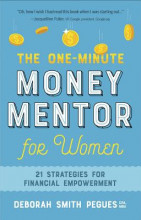Excerpt:
Mrs. Deborah Pegues: I always say Christians need to be the – not the thermometer that measures the temperature, but we got to be the thermostat. We got to set the temperature. We’re going to set the environment. We’re going to set the mindset that we’re going to have in any adversity. We can do that. I mean, we can do it through Christ who strengthens us. And so, that’s what we’ve got to do. Decide we’re going to have a peaceful atmosphere. I’m gonna guard my peace.
End of Excerpt
John Fuller: This is Focus on the Family with Jim Daly and our guest today is Deborah Pegues. Thank you for joining us. I’m John Fuller.
Jim Daly: John with all the news we see daily about the COVID-19 pandemic, the racial tension leading to protests and riots and the upcoming Presidential election, we are bombarded with situations and circumstances that leave us feeling anxious and worried. And that’s, uh, I’d say, a normal response. Counselors often report anxiety is running rampant as clients come to meet with them.
John: Mm-hmm.
Jim: It’s a pandemic in itself. During these times, though, I find comfort in the words of Jesus from the Gospel of John in chapter 16, verse 33. He says, “In the world you will have tribulation.” And we all say, “Yeah.” “But take heart. I have overcome the world.” What a comfort that our faith is based in something that transcends the troubles of this world.
John: Mm-hmm.
Jim: That’s good news for us. And here at Focus on the Family, we want to remind you of God’s love for you so that you can live in that freedom, that this life doesn’t hold you in bondage.
John: Yeah.
Jim: In His grace and power, you can do all things. And that includes conquering anxiety. And we’re going to talk about that today with a great guest.
John: And a couple of weeks ago, we spoke with Deborah Pegues. She is a perennial favorite with our listeners here at Focus on the Family. And we talked about managing anger. If you didn’t catch that, please go to the YouTube channel, or get the app, get a copy of the download or a C.D. Let us know and we’d be happy to help you with that. Today, she’s back with a look at worry and anxiety. Uh, we’re going to be talking about her book. It’s a short little book, but a very powerful one, 30 Days to Taming Worry and Anxiety.
Jim: Deborah, welcome back to Focus.
Deborah: Thank you so much. I know we’re going to have a great time.
Jim: It’s good to have you here again. Let me ask you right out of the gate. As a behavioral consultant, you work with people all the time. That’s what you’re doing is trying to help them. What are you hearing about the way anxiety is affecting them? What are you seeing in the culture as you’re coaching people with their emotions?
Deborah: Oh, anxiety is running rampant and among Christians as well. And I’m – I’m experiencing a little anxiety myself right now, but I know what’s driving it. My husband is getting ready to leave town for a getaway and I never stay at home by myself. And he’s gonna be gone about eight nights. I am just already anticipating staying – working all night long, so I don’t have to go to bed while it’s dark. (Laughter)
Jim: I’m so glad you experience that. I’m sorry to say that to you, but I’m the same way. When Jean and the boys are out of town or something and I’m home alone, I hate it. It’s not where I want to be. I only like being at home when Jean’s there and the kids are there. It’s a much better feeling, right? What does that say about us? (Laughter)
Deborah: Well, it’s fixed to something we believe or habits we’ve developed. But, see, I’ve never liked staying by myself in our 41 years of marriage. I don’t like staying by myself. I – I just don’t. And, uh – but we also had a break in, an attempted home invasion, and I think that’s driving part of it.
Jim: Oh, sure. Well, that makes more sense. Of course.
Deborah: Yeah. Yeah. And – and, yeah.
Jim: Deborah, you, uh – you describe in your book a time when you had a particularly stressful day. I think it related to your brother – just to jump to another example of anxiety and stress. What happened with your brother and how did you manage it?
Deborah: Well, this was when my mom was alive, and I was her primary person who made sure she got taken care of. So, the state had a program where they would even hire a relative to take care of someone. And he had given her medicine. She had run out of it. And I – it was a board meeting day and I had a big presentation. We were doing a big project for this church I was the CFO of it. It was just too much coming in on me. I had just started with this condition called trigeminal neuralgia. And it was my – you know, my jaw was hurting. And it was so much converging. And ’til I just felt so stressed. I just said, “Jesus, come now.” (Laughter)
Jim: Yeah.
Deborah: But you know what? I got – I got through it because sometimes you have to – and this is a season we got to really practice taking a deep breath. Now, that’s very practical and spiritual, I believe. You just take a deep breath and just recenter yourself and say, “Listen, what should I do next?” Sometimes I’ll just ask God, “What is my next step? I have too many things to do. What is the best use of my time? What do You want me to do next?”
Jim: Yeah. Deborah, too, what that identifies is your ability to identify those stressors. You know, that is half the battle, I think, is know the stressful situation you’re in, being able to kind of call it out, that you – you’re self-aware enough to say, “this is causing me stress” and then you can deal with it much better rather than just reacting – right? – and not even knowing why you’re reacting.
Deborah: Absolutely. And I’m big on pencil and paper, so I’ll make a list of what are the top three things, top five things, that are really stressing me now. And then I’ll ask myself, are any of these within my realm of influence? If it’s something I can’t help – you know, I can’t help the traffic. I can’t help the political situation. What’s – what’s stressing me? I – what’s stressing me? Even now, I have so many friends who are on opposite sides of the political divide. And so, just trying to be that peacemaker, I’m finding that stressful and – and that kinds of stress leads to anxiety. So, I can’t get them together for a fun time because I know it’s going to turn into, “he’s this” “she’s not that” blah, blah, blah.
Jim: Yeah.
Deborah: So, that can be stressful, too. So, you just try to identify first of all, what is stressing me? What’s within my control? What’s not?
Jim: One thing you mentioned in 30 Days to Taming Worry and Anxiety is this need for a secure foundation. You then use an analogy of a four legged stool. What are the legs of that stool that give us that secure foundation?
Deborah: Well, I say life is like a stool that at the base is all your beliefs and then the four legs, the four pillars of your life, are the physical, the relational, the emotional and the financial. Those areas all have incidences of stress and anxiety. And right now, the financial part, people are – some people have already lost jobs. Some are anticipating losing a job. When we understand that, that’s the nature of anxiety, anticipating a negative outcome. You can anticipate a negative outcome in a relationship. They’re expecting more divorces now that we’ve had the pandemic because couples are spending too much time…
Jim: Yeah, think of that.
Deborah: …They say too much time.
Jim: That’s sad.
Deborah: You know, kids. But I – when I read that stat, I thought, that is terrible. So, you know, but those are all areas for anxiety. And so, you got to do what you need to do. I told my husband, “Go on a trip. That’s fine to go by yourself if that’s what you need to kind of get away from all of the hustle and bustle of being married to me.”
(LAUGHTER)
Jim: I can’t imagine that. You’re not energetic at all.
(LAUGHTER)
Deborah: I have a lot going on and my husband’s like – you know, he likes to sit there and watch the grass grow.
(LAUGHTER)
Jim: I was going to say, Darnell, I think, is very peaceful, isn’t he?
Deborah: He is. And, you know, if I don’t have 10 things to do, I’m like, “Oh, this is boring.” (Laughter)
Jim: That is so amazing. It’s so typical of couples, right? Opposites marry each other. Hey, Deborah, you once were distracted from prayer. I think this is so funny. This is a great example. I love your examples…
John: Very common. Yeah.
Jim: …Because they’re very straightforward; very, you know, common to all of us. But you were wanting this special prayer time, a little quiet time, kind of get rid of your anxiety, and what happened?
Deborah: Well, I – I didn’t allow enough time for it, so I…
Jim: (Laughter).
Deborah: …And this is so important. (Laughter) But I said, “Okay, I’m set up. My environment is ready. I’m going to listen to this C.D. by a certain artist that I just love. I get down there and I can’t find the things. So, I say, “Oh, it must have been in the trunk of my car.” I go to the trunk. It’s not there, but there was a lot of disarray there, so I organized the trunk real – real quick. Went back to the – my office.
(LAUGHTER)
Deborah: And, oh, I can just check messages since I’m just standing right here.
Jim: (Laughter).
Deborah: So, I check the messages. (Laughter) Oh, there’s a plant with a yellow leaf. Why don’t I just water that? I’m right here. Okay, I can just check a message or two. By the time I got back to my prayer room, I mean, I literally had about honestly only about five more minutes left in this one hour that I was going to spend securing my foundation. Because I know the importance of being in the presence of God and how it calms you down when you get there and exalt Him above all that’s going on. Anyway, I didn’t get a chance to do that that day. And let me tell you, it shows in how you relate to people. That’s why I say to deal with the anxiety and stress, secure your foundation, get in the presence of God, and decide how you’re gonna respond today. You’ve got to get in the presence of God and receive His strength for today and declared that, that this is the day that I’m going to exemplify You in all that I do. Well, I didn’t have time to do that.
Jim: Yeah.
Deborah: So, when I got back up there, all I had time to pray was, “God bless everybody. Just bless the whole world.”
(LAUGHTER)
Jim: But, it was a great lesson in, yeah – how to – how to relax by, you know, really actually relaxing, not creating more stress for yourself.
Deborah: Yeah.
Jim: That importance on self-care. I do want to punch that again, because I think in our culture, it’s so difficult to do. And then we start making excuses for it, you know, like what you just said. You know, I got to do this, or I got to – I’ve got to do that with the kids, my husband, my spouse, whatever it be. And you diminish the self-care area. And it also feels a bit selfish as a Christian to be too concerned about self-care. But, you know, give us that best punch. Why should we embrace self-care?
Deborah: Because Jesus set the example. I remember a story when there’s a disciples came back, and they had been out there saving the world. And they said, “This is all that we’ve done.” And His only response was, “We need to get away for a while.” If Jesus saw the need to do that, to take these times where you go and get quiet and – and rebuild yourself on the inside, how much more should we do that? And when we don’t it shows. When I’m tired, I’m more irritable. I just need to just get somewhere and be quiet and not say yes to so many things. That’s part of self-care. Saying no is a significant part of self-care and we got to learn to do that.
Jim: How do you get there? How do you get there, Deborah? I know my wife, Jean, has struggled with that. She’s doing far better now than she did, you know, 10 years ago in her younger life. I mean, she was just a “yes, I’ll help you,” kind of person. In some ways, that’s really sweet. But you can get to the point where you’re over “yessing” people – if I could say it that way – and you end up so thin that you are burned out. So, that – for that person that sees, you know, it’s a bit rewarding to be available for other people to help them.
John: Yeah.
Jim: It’s very Christian to want to give and that’s all good. But when it impacts you negatively and then you begin to get a little anxious about your use of time or you’re worried that you made two commitments at the same time, now, what do you do? What are some steps that personality type, that – that individual can take to be more assertive for their own well-being?
Deborah: Well, first of all, you got to understand your why. Why are you saying yes? And it looks very noble in many cases, but sometimes we don’t want people to be upset with us if we say no. And so, I always make an appointment on my calendar. And even in my own head. So, I have a phrase I use when people ask me to do something and I really want to say no. I’ll say, “I have another commitment.” Well, I do have another commitment. I’ve committed to not wearing myself out saying yes all the time.
(LAUGHTER)
Deborah: And so…
Jim: And being comfortable with it. Yeah.
Deborah: And – and being comfortable with it. Because you know what? If you don’t manage yourself and again, Jesus was the example. We’re going to have to do that so that we can be effective. Even when they came to Jesus and said, “Listen, everybody’s looking for You.” I love that story. It’s in Mark 1, first chapter of Mark. “Everybody’s looking for You.” And then it goes on to say, “But He said, ‘I have to go into the next towns because that’s what I’ve come to do – to preach. I – healing is great, but My primary goal was to teach.” Here’s the deal. We got to stay focused on our priorities. You – you really can’t be everywhere all – at the same time, and especially if you have children and a husband. What’s my priority? God, my marriage, and then maybe my church or my career. But if I keep that – and listen, Jim, we do this. Friday nights, people know not to call me. That’s my date night consistently for 40 something years – date night. So, I – that’s sacred. So, we have to guard it because we teach people how to treat us by what we allow. So, we teach people to always violate those boundaries and timeframes that we’ve set for our family, they’re gonna just keep doing it and you’re gonna grow more resentful.
Jim: Hey Deborah, you are a CPA by training, and I know the COVID situation and other things have put a lot of pressure on people’s finances. That’s one of the legs of the four legged stool – your ability to manage money. You have an extensive list, probably 12, 13 items. What are a couple of those? And we’ll post those at the website, with your permission, Deborah, so people can go and take a look at them. But what jumps out at you right now from that list that people need to be mindful of when it comes to managing their money?
Deborah: Well, first of all, I don’t want them to get anxious because it looks like they’re going to run out because what they thought was their source was just really a channel. And I like for people to always remember that God is your Source. He chose your job to be a channel for your finances, but He has many other channels. And so, just like on your television, I’ll say, “Hand God the remote. Let Him select the channel.” Don’t be anxious about this. But what you can do is prioritize your spending. Get with your spouse and just spend money according to God’s priority. Agree on it. Don’t let that be a – a source of division. Agree on what the priorities will be. “This is what we’ll spend.” And stick to it once you’ve come to an agreement. But most of all, just don’t worry. Anxiety, again, is expecting a negative outcome. When you are worrying, you need to stop and say, “What am I believing? What am I believing?” Because usually worry comes out of a – a false belief about God. He is able.
Jim: Yes.
Deborah: And you’ve got to believe that, and you got to embrace that. He’s able to do even more than you could ask or think. Now that’s big because I can think of a lot of stuff, but He’s able to do more than that. So, that’s what I say. Stay out of debt. Don’t do emotional spending. This is not the time to comfort yourself with high priced restaurant food that you ordered in because you didn’t want to cook. Just begin to do the things that are practical.
Jim: Hm.
Deborah: Yeah.
John: This is Focus on the Family and our guest today is Deborah Pegues. And, uh, she’s got this great little book, 30 Days to Taming Worry and Anxiety. A lot of the insights you’re hearing today are captured in this book and so much more. Get a hold of it by getting in touch with us. Our number is 800, the letter A and the word FAMILY. Or stop by focusonthefamily.com/broadcast.
Jim: Deborah, you’re touching on this, but I want to hit it straight on. We do turn to distractions as a coping mechanism to escape stress and anxiety. Why do we need to be mindful of that – what those distractions are? What are some of those distractions and how – how do we avoid those pitfalls?
Deborah: Well, listen, my – our pastor taught a message once and he said some distractions are divine distractions. I had a friend who lost a daughter recently. And so, I had my – that day laid out, but I just felt like the Lord was saying, “Call her and just listen to her or talk to her or whatever.”
Jim: Yes.
Deborah: And so, that wasn’t a distraction. But we’re going to have to guard it. And you do that with the list. You have to have a prioritized list. And don’t put too much on it because that’ll stress you out as well. You know, you put about two or three major things you’re going to get done today, and that’s all you’re gonna get done and you’re not going to beat yourself up if you didn’t get to the rest of them. That’s why you probably only need to see about three of them at a time. I mean, I have lists. My lists, have lists, but I don’t pull them all out at the same time.
(LAUGHTER)
Jim: Deborah and that…
Deborah: I’ll…
Jim: I was just gonna say in that regard, how do you create margin if, you know, you’re listing two or three major projects that you need to get done today, and that takes you pretty much to the end of the day? How do you remember to be present for that friend, that very example that you gave, when it’s – you know, some might feel, even though it’s, um, you know, catastrophic in that case, how do you turn your mind and your emotions that this is not an interruption, but it’s most likely what God wants you to concentrate on right now and not be put off your balance because of that?
Deborah: Right. And even if you don’t have the margin, you can just decide, I’m not going to get to this item on this list today. Everything doesn’t have to be done today. It’s just – that’s why we need to get up in the morning when we have – those of us who are prone to having lists – to hold that list up and say, “God, here’s what I think I need to do today. But even now, I lay it at the altar. I just put it at Your feet so that You can prioritize it.” We really gotta stop trying to live life in our own strength and our own rationale, because sometimes He’s calling us to do something different and – and it’s okay. You’ve got to give yourself permission. You’ve also got to give yourself permission not to be productive 24/7.
Jim: (Laughter).
Deborah: Listen, I took a three hour nap yesterday. That’s why I was probably up so late because I slept from three to six. (Laughter)
Jim: I’m going to take that as permission to do the same.
John: Yeah. That’s good. That’s good. I appreciate what you’re saying there, Deborah, because even just yesterday, Jim, Dena and I took a walk after work and we had kind of an agenda for what we were going to talk about on this walk.
Jim: (Laughter).
John: And, sure enough, we ran into some neighbors we haven’t seen forever. And we talked to them for 15, 20 minutes and we left. And I just said, “That was kind of a divine appointment. People should be the priority.” And – and I’m so glad we saw those folks and we did eventually get to what we wanted to talk about. But if I had my list in mind, I’d be waving at them and walking right by, but I hear you saying people really should be the priority.
Deborah: Yeah. And, you know, especially now because we need each other. And so, to the extent that you can interact with people, God uses people. And so, people help bring us joy. So, don’t get so focused on the goal. Don’t get so focused on the goal that you stop being a person.
Jim: Well, in that regard, too, expectations can be, you know, terrible in terms of our expectation of our spouse and what that person will do today for me. I mean, we have all that going as well. How do we manage those expectations?
Deborah: Well, here it is. First of all, you got to manage the expectations you have of yourself. What – you know, sometimes we live in shoulds. See, I have an expectation of myself that I should always have food ready and I pretty much do. I’m Suzy Homemaker here because I think part of it is I feel guilty for working so much. But I make sure my husband has his favorite meals are always there, frozen in a serving size – blah, blah, blah, blah. But he told me the other day when I was trying to get ready for the launch of my new book, he said, “I don’t require that of you.” You know, he said, “You – you need to not do that.” But I’m thinking, yeah, but I know I’m going to work ’til like midnight, so I don’t want him looking for food. Any rate, so we got to evaluate the expectations that we have of our self and ask ourselves, is that reasonable? But we also got to manage expectations that other people have. To what extent are we saying yes because we don’t want to disappoint somebody? Is that reasonable? Then we got to look at expectations we have of other people. Is it reasonable? Have I expressed it? You know, those are the kinds of things we’ve got to look at because a lot of times we don’t express our expectations. It creates more stress because now we’re sitting here thinking somebody should know, but we didn’t tell them.
Jim: No, it’s, uh – I’m kind of smiling because I’m listening to you talk about getting your frozen food ready for Darnell and finishing your book.
(LAUGHTER)
Jim: I mean, some people are going, “What?” And to do it by midnight.
(LAUGHTER)
John: Two – two incompatible goals right there in expectations.
Jim: I mean, that sounds exhausting, but I get it.
Deborah: (Laughter).
Jim: Hey, uh, Cynthia was a mentor for you in some way, a friend. Explain the story of Cynthia and what she taught you.
Deborah: Well, she lost two children on the freeway. It was just a traumatic time. But here’s the deal, she is one of the most joyful people that you’re going to find. She says, “Where there is a crisis, Christ is.” And she models this kind of peace.
Jim: Huh.
Deborah: But she had to get there because she couldn’t even get out of bed either, uh, for the first few months after her children died. But then she found a letter that they had each left her. And it was just very power empowering for her. She set the tone by how she’s going to respond to stress. I always say, Christians need to be the – not the thermometer that measures the temperature, but we got to be the thermostat. We got to set the temperature. We’re going to set the environment. We’re going to set the mindset that we’re going to have in any adversity. We can do that. This – this isn’t – this requires supernatural intervention. Anything I talk about when I say we can do it, I mean we can do it through Christ who strengthens us. And so, that’s what we’ve got to do. Decide we’re going to have a peaceful atmosphere. I’m gonna guard my peace.
Jim: Yeah. That…
Deborah: That’s important. Guard your peace.
Jim: Yeah, it’s so good. Let me give you a little experience I had and have you speak to it. I remember being at lunch with a nonbeliever. We were just eating. And he was saying to me, “You know, I’m really concerned.” I said, “Well, what are you concerned about?” He said, “Well, you guys in the Christian community are so anxious right now about everything, that really troubles me, because if you guys are anxious, knowing what you believe, I’m really anxious.” And I thought, wow, what a – what an expression of what we need to be in Christ for those who are watching us – um, that we claim Christ and yet we’re anxious, which makes – potentially makes them even more anxious because we’re supposed to be the people that believe in the hope of Christ, right? That we are not anxious for anything. In fact, Paul says that. “Be anxious for nothing.” It’s hard to do.
Deborah: Well, it’s hard to do if you’ve not programmed yourself to do it. When I say programmed yourself – you program yourself with the word of God and its shapes and inform how you think and – and what you do. This is our finest hour. Listen, all of my speaking engagements were canceled because of COVID. So, I could have just easily have said, “Oh, my God, what am I gonna do now?” Well, what I’m going to do now is say, “God, what are You saying next?” He’s a creative God…
Jim: (Laughter) Right.
Deborah: …And I (laughter) – you know. And so, we have to always recheck our beliefs. What am I believing? What am I not believing about God when I had this anxiety? I’m not believing then that He’s going to supply all my need according to His great riches, His resources, not my paycheck. He’s chosen a different channel now. I got to go with the flow. We need to model this to the world, Jim. If we’re gonna get people to really embrace Christ, they need to see a difference. This is our finest hour. We don’t even need to talk negatively. We don’t need to join in an awful conversation.
Jim: Yeah.
Deborah: We need to say, “God is doing His thing. That’s what He’s doing.”
Jim: Deborah, let me ask you, too, in that kind of context, how you have managed releasing tension? I mean, I think I’m a bit of an avoider in that regard. You know, if there’s something going on, I’d rather solve it quickly and move on. I don’t like lingering in tension. It’s probably part of my childhood experience, you know, being an orphan kid and all the turbulence going on when I was a child. But it – you know, I just don’t like hanging out in tension. If you’re going to – if there’s gonna be this tense conflict, I’m going to go do something. You guys work it out.
(LAUHGTER)
Jim: And that’s probably, you know, something I need to work on. But how do you manage that tension? How do you de-escalate tension?
John: Hmm.
Deborah: Well, I think you need to address it. I I’m from your cut. (Laughter) Listen, if there’s something – whatever you can do to fix the situation, do that.
Jim: Yeah.
Deborah: You know, don’t let stuff linger. There’s a confrontation that needs to happen and I use that word strategically. It means “coming together face-to-face.” And so, if you need to come together face-to-face with somebody, then do it. Do it. Get that out of the way, because there are other things we can’t resolve. My niece went to the hospital and – and almost didn’t survive COVID, but I couldn’t do anything about that except get a lot of people praying about it because that’s practical. I like to say that. Praying is practical. Worshiping is practical. Confronting is spiritual. When we go back on those spiritual disciplines – let’s work those relationships. Let’s keep them free of conflict if we can. And that means confronting the issue. If you go outside, and this is very common, and I’m looking for a space to just kind of be quiet for a moment and your spouse joins you, but you really wanted to be alone, learn how to say that, “I’m good.” Before you go, “I’m – I’m gonna go and have some quiet time now.” Rather than seeing him. He sees I’m reading the Bible why is he out here talking to me?
(LAUGHTER)
Jim: Because he loves you.
(LAUGHTER)
Jim: Hey, that does…
Deborah: Because we learn how to express our needs. That’s part of keeping tension and anxiety and stress out of your life. Express what you need and say it in a way that’s God honoring rather than waiting to – for somebody to violate that, you express what you need upfront.
Jim: Yeah. And, you know, it really does lead to that next question about the use of laughter and humor in your relationships. That’s – what’s a fun way to get your point across. But how – how critical is humor in relationship?
Deborah: Oh, we need to laugh. It’s like – it’s medicine, as the Bible says. It’s medicine. I got to YouTube, and I type in “funny jokes,” “funny clean jokes.” So, I have books that have funny jokes. I watch reruns of things that are not so sexual these days. I like to watch I Love Lucy.
Jim: (Laughter).
Deborah: And, you know, those kind – good, clean things like that. You need to laugh. You know, there’s still something to laugh about. “The joy of the Lord is our strength” and we need to practice that. And – and don’t watch the news too much. No, no, don’t watch… (Laughter)
Jim: No, Deborah, that’s so true. It just it – it creates an anxiety in you and that worry. Uh, Deborah, let’s end with your stress model. I think this is a good acrostic that people can use once they learn it. But you use the word “stress” and then each letter represents something. Can you go through that with us real quick?
Deborah: Sure. Sure. “Stress.” S – T – R – E – S – S. “S” is for seek God’s guidance. “T” is for trust what He tells you to do. “R” is remember past victories. If He did it once, He’ll do it again. “E” is exalt God above the problem. Don’t bring God down to the level of your problem. “S,” is solicit the prayers and support of others. And the other “S” is stand on the promises of God. He’s promised to meet all your needs. He’s promised to guard your joy. Allow Him to do that.
John: Hmm.
Jim: Yeah. And it’s so good. Uh, Deborah, 30 Days to Taming Worry and Anxiety. What a goal. It’s a great goal, particularly for us as Christians…
John: Mm-hmm.
Jim: …To get a handle on these things that are like wild animals in us. If we don’t leash them, they will do damage. And so, I so appreciate the insights that you bring, the lists that you’ve talked about. Again, we’ll post those at the website. People can get that. If you can help us in this ministry, put an arm around someone through Focus on the Family by supporting us with a donation of any amount and we’ll send you a copy of Deborah’s wonderful book, 30 Days to Taming Worry and Anxiety as our way of saying thank you. And again, Deborah, this has been so good. You’re – you’re so pithy in applying God’s principles. And I think that’s why listeners respond so favorably to what you have to share. Thank you for being with us.
Deborah: Thank you so much for having me.
John: If you can, donate today when you call 800, the letter A and the word FAMILY. As Jim said, that allows us to, uh – to reach out and do broadcasts like this and to provide caring, Christian counseling services. You can have a one-time consultation over the phone with one of our counselors at no charge. That’s made possible by generous donors. So, as you can, please, donate when you call 800-A-FAMILY. Or online we’re at focusonthefamily.com/broadcast. And, as Jim said, when you donate today, we’ll send a copy of Deborah’s great book, 30 Days to Taming Worry and Anxiety. And be sure to join us again next time as Ryan and Selena Frederick share encouragement to let God’s light shine through your marriage.
Teaser:
Mrs. Selena Frederick: God has given me this position of either helping my husband, really helping and stepping into that role, or really cutting him off and allowing sin and brokenness to just take over.























